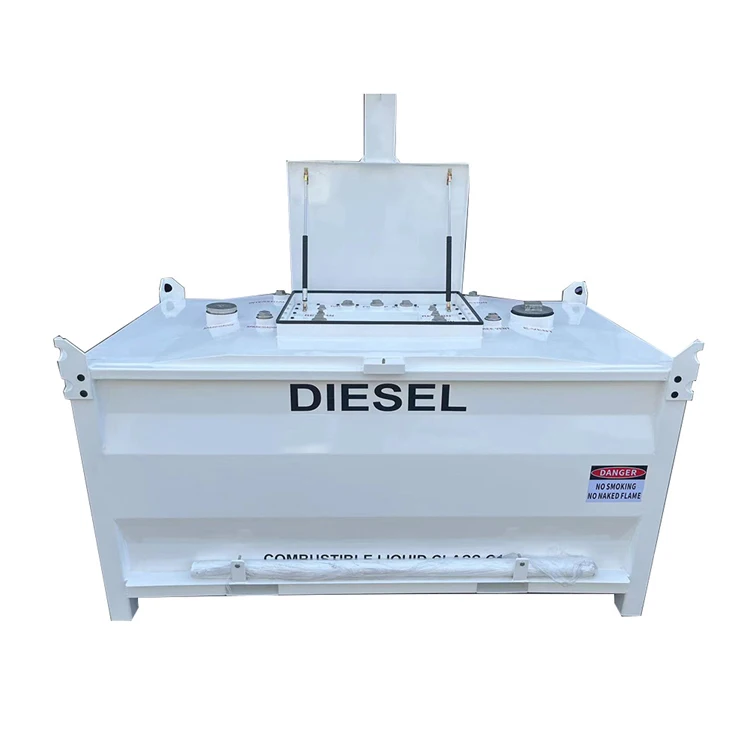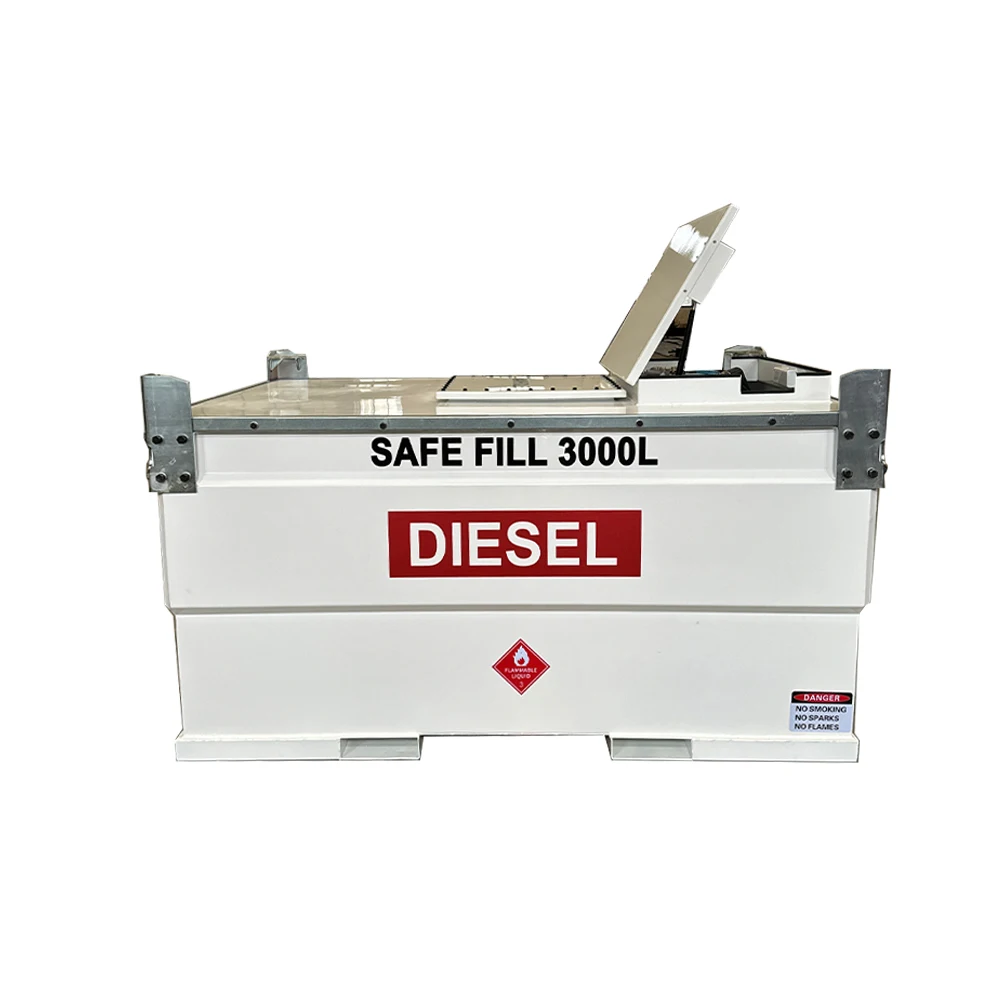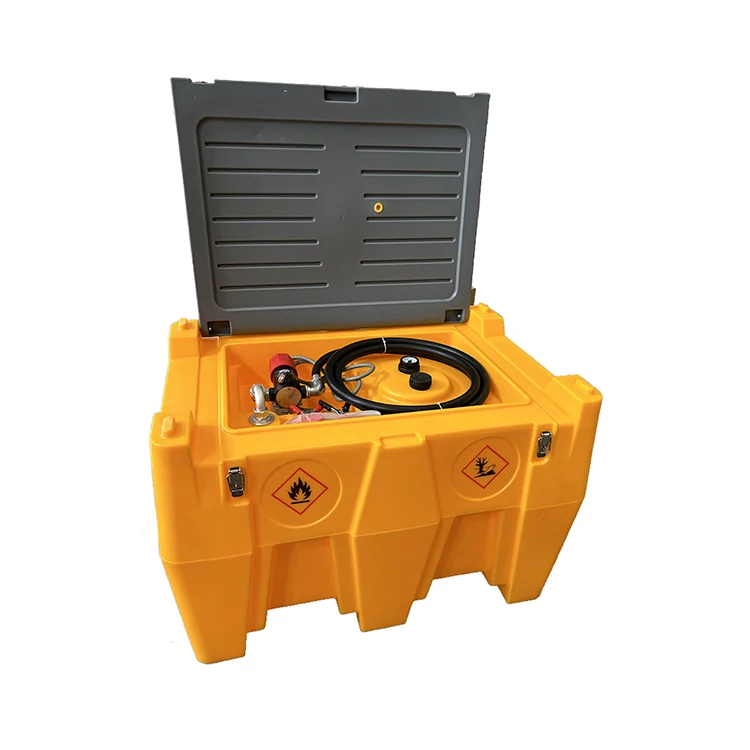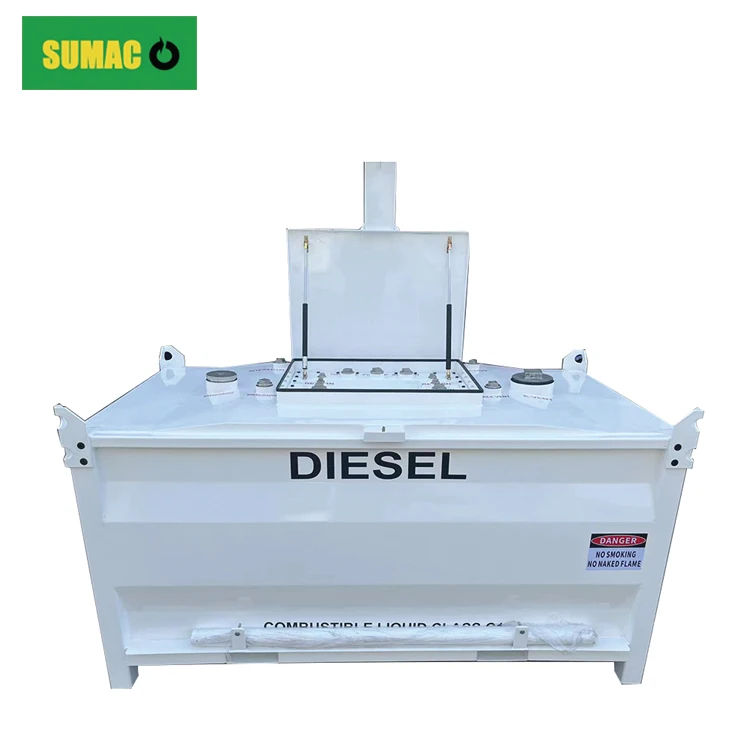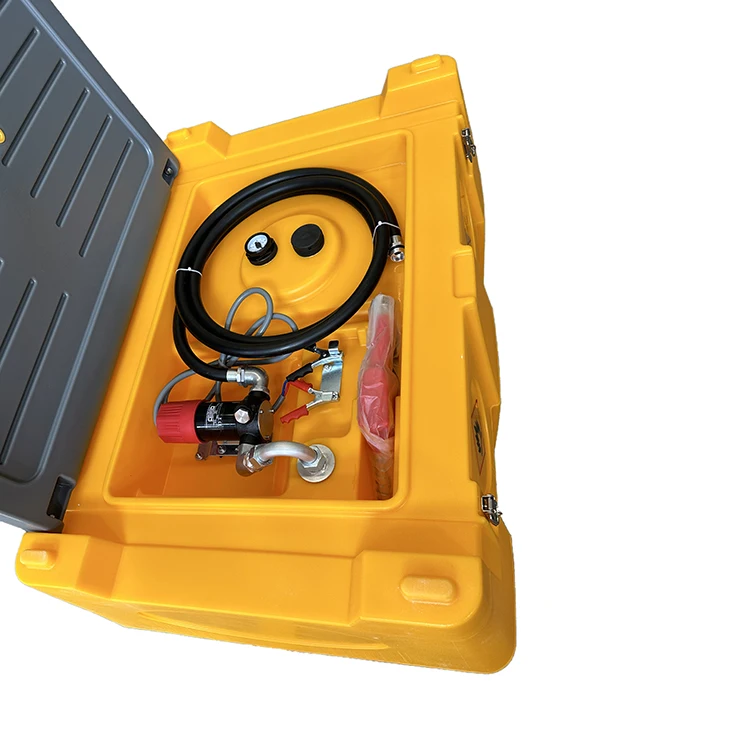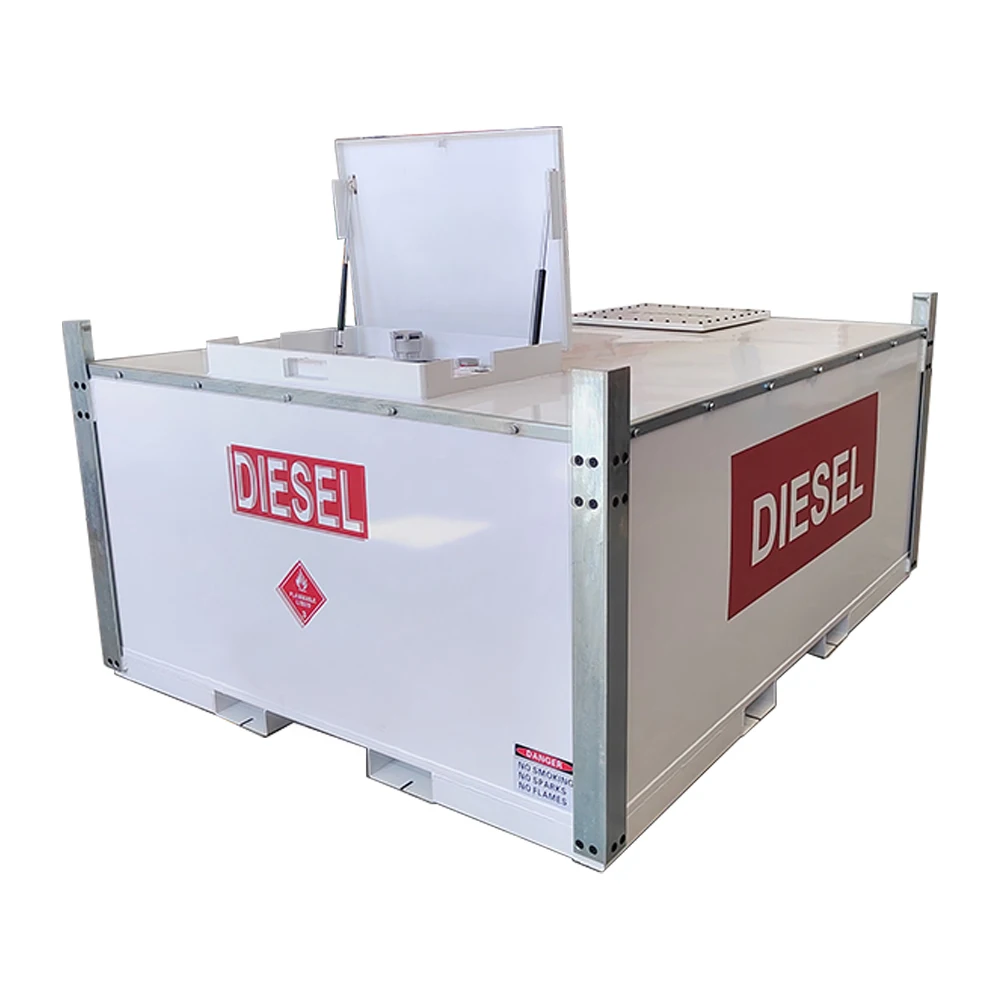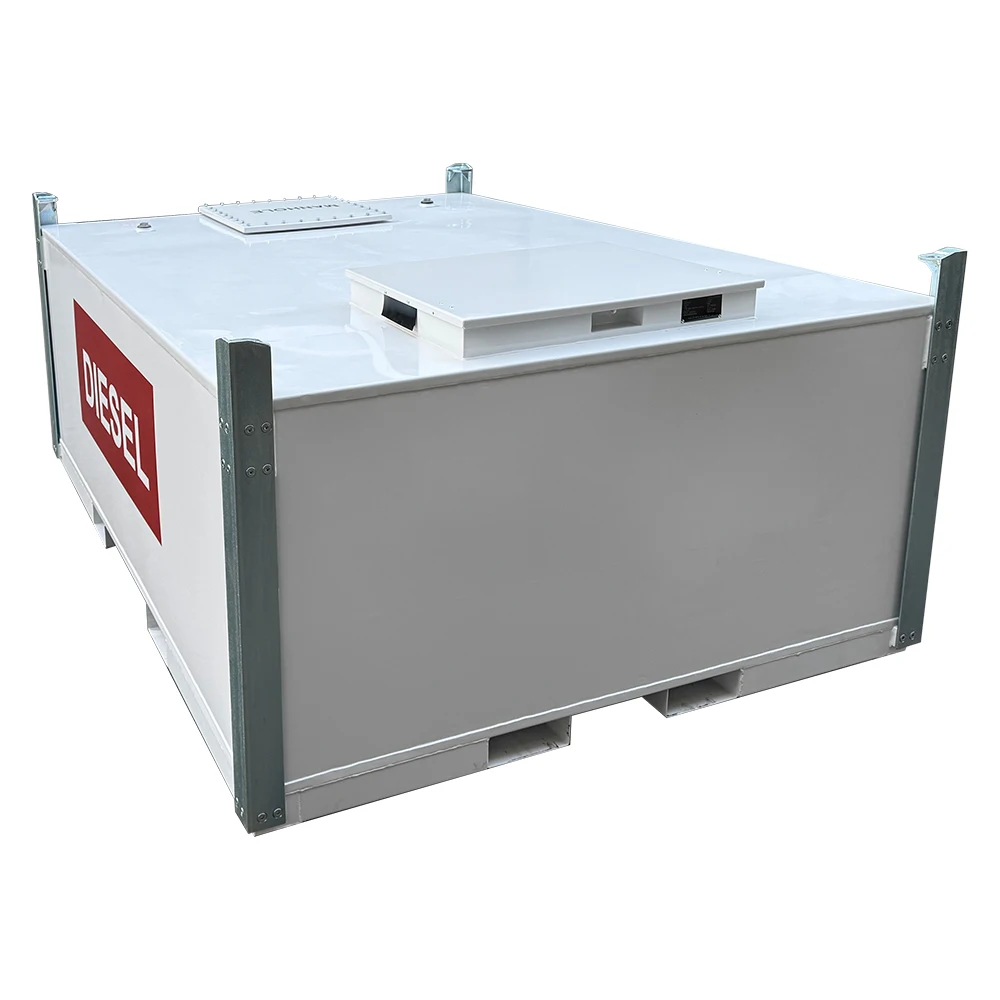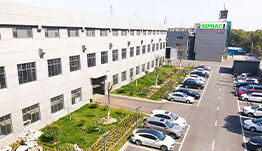Diesel gasoline fuel cube tank
Features
Compact and economical: FuelCube series diesel and gasoline fuel cube tanks are compact in design and occupy a small area. They are very suitable for places with limited space, such as small gas stations, construction sites, logistics centers, etc. At the same time, they are also economical in cost, which can save users storage and transportation costs.
Safe and reliable: Double-wall structure is usually adopted, with good sealing and anti-leakage performance, which can effectively prevent diesel or gasoline leakage from causing environmental pollution and safety hazards. Some fuel cube tanks are also equipped with locking devices to ensure the safety of equipment and ports and prevent unauthorized personnel from operating.
Easy to move: Some fuel cube tanks are equipped with 4-way forklift pockets, which are convenient for forklifts to carry and move when empty, and convenient for deployment between different locations, which improves the flexibility of use.
Diverse functions: Different accessories and equipment can be configured according to user needs, such as fuel pumps, fuel meters, emergency relief devices, etc., to meet various functional requirements such as refueling, metering, and safety.
Application areas
Gas stations: used to store diesel and gasoline and provide refueling services for passing vehicles. Its compact design can adapt to gas stations of different sizes, whether it is a large integrated gas station or a small rural gas station.
Industrial field: Mechanical equipment in factories, mines, construction sites and other places requires a large amount of diesel or gasoline as power fuel. Fuel cube tanks can provide on-site storage and refueling services for these equipment to ensure the normal operation of the equipment.
Transportation industry: Logistics and transportation companies, bus companies, taxi companies, etc. can use fuel cube tanks to provide convenient refueling services for their fleets, reduce the time and cost of vehicles going to gas stations, and improve operational efficiency.
Agricultural field: Agricultural machinery such as tractors and harvesters in agricultural production sites such as farms and plantations need to use diesel or gasoline. Fuel cube tanks can conveniently provide fuel supply for these machines to ensure the smooth progress of agricultural production.
Common specifications
119 gallons: For example, FuelCube's Type-S 119-gallon fuel cube tank is light in weight and suitable for use with small vehicles or equipment. It is often equipped with a 12V/15gpm diesel pump kit to facilitate the extraction and delivery of diesel.
243 gallons: This specification of fuel cube tank can meet the needs of medium-sized fuel storage and use. It can also be equipped with equipment such as diesel pump kits, which is suitable for the refueling needs of some small construction sites or small fleets.
528 gallons: The 528-gallon fuel cube tank has a large storage capacity and can be used for larger construction sites or logistics centers. It can be equipped with diesel pump kits and gasoline pump kits at the same time to meet the use needs of different fuels.
1016 gallons and above: It is a large-capacity fuel cube tank, generally used for centralized fuel storage and supply in large industrial sites, large gas stations or large fleets, which can reduce the number of frequent fuel replenishments and improve work efficiency.
Maintenance and management
Regular inspection: It is necessary to conduct regular appearance inspections of fuel cube tanks to check whether the tank body is corroded, deformed, leaked, etc., and check whether valves, pipes, pumps and other equipment are operating normally to ensure the safety and reliability of the fuel storage and supply system.
Cleaning and maintenance: Clean the tank regularly to prevent impurities, moisture, etc. from accumulating in the tank and affecting the quality of the fuel. At the same time, clean the outside of the tank to keep the tank clean and tidy to prevent corrosion of the tank due to dirt accumulation.
Safety management: Establish a strict safety management system, and operators must undergo professional training and be familiar with the operation methods and safety precautions of the fuel cubic tank. Obvious safety warning signs should be set up around the tank area, and necessary fire-fighting equipment and emergency treatment facilities should be equipped.
https://www.sumachine.com/
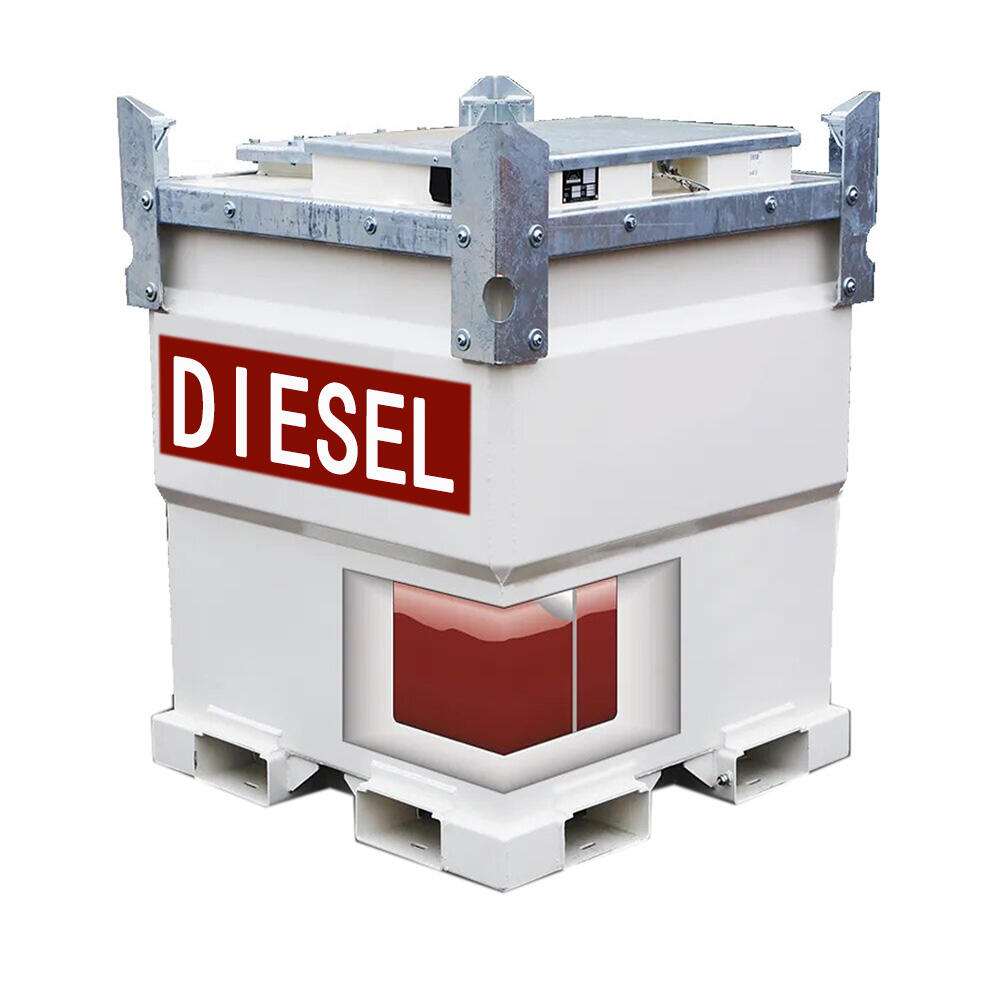
Recommended Products
Hot News
-
Double wall portable diesel gasoline cube tank with pump sale for Mauritius
2024-11-11
-
Double Walled Portable Fuel TransferCube Tank Ship To Spain
2024-11-07
-
Shipping of portable aviation fuel tank with pump
2024-10-12
-
Carbon steel diesel fuel cube tank ship to USA
2024-11-14
-
Carbon steel cube tank with pump
2024-11-13
-
Fuel Transfer Tank Cube Stationary Double Walled Diesel Storage Tank Sale For Spain
2024-11-06
-
251 US Gallon 552 Gallon Fuel Cube Transfer Tank Sale For USA
2024-11-05
-
251-2000 Gallon Fuel Cube Transfer Tank Sale For Grenada
2024-11-01
-
552 Gallon portable fuel dispenser with tank sale for USA
2024-10-30
-
Mobile fuel tank with pump sale for Spain
2024-10-22
 EN
EN
 AR
AR
 BG
BG
 HR
HR
 CS
CS
 DA
DA
 NL
NL
 FI
FI
 FR
FR
 DE
DE
 EL
EL
 IT
IT
 JA
JA
 KO
KO
 NO
NO
 PL
PL
 PT
PT
 RO
RO
 RU
RU
 ES
ES
 SV
SV
 TL
TL
 ID
ID
 LT
LT
 SR
SR
 SK
SK
 SL
SL
 UK
UK
 VI
VI
 HU
HU
 TH
TH
 TR
TR
 MS
MS
 GA
GA
 IS
IS
 KA
KA
 HT
HT
 KK
KK
 UZ
UZ


